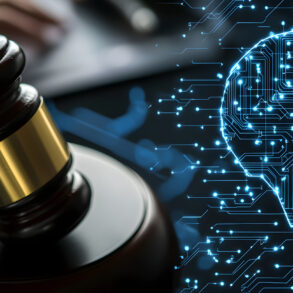
Since civilization’s dawn, justice has shaped societies. From ancient origins to modern geopolitics, it’s society’s bedrock. In this journey, we explore justice’s intricate facets, from women’s rights to the environment, pondering its future in our advanced world.
Ancient roots in Mesopotamia and Egypt birthed rudimentary legal systems. Hammurabi and Ur-Nammu’s codes ensured fairness in trade and family. More than governance, these codes upheld societal values. They showed that even in ancient chaos, order and fairness prevailed. Justice, from its earliest form, became a human civilization’s essential thread.
Justice isn’t just an idea; it’s vital for society. Take property disputes, for instance. Without justice, conflicts can tear communities apart. Justice offers a peaceful way to resolve these disputes, ensuring fairness. Imagine two neighbours arguing over land. Without a fair system, violence could prevail. But with justice, they can turn to the law, present their cases, and trust an impartial judge to decide based on evidence and rules.
In international relations, justice is pivotal. Diplomacy relies on trust and adherence to international law. When nations break these norms, international bodies like the United Nations step in for justice. International courts, like the International Court of Justice (ICJ) in The Hague, resolve state disputes. Their binding judgements show that even in a world of diverse interests, justice and the rule of law have a place.
Justice and women’s rights are intertwined globally. Women have battled for equality, from suffrage to workplace parity. But much remains undone. Many still face discrimination and violence, like in rape cases where justice is elusive.
Think of Nirbhaya, whose brutal rape and murder in Delhi in 2012 shook the world. Justice prevailed, but the case exposed flaws in India’s legal system, including delays and barriers for survivors. Nirbhaya’s case symbolizes the link between gender, justice, and societal change. It spurred protests and legal reforms to better address sexual violence.
The elderly, often forgotten, bring forth another facet of justice. In old-age homes, many live without family support. Justice must safeguard their rights, dignity, and care through legal frameworks. Beyond physical challenges, loneliness and neglect affect the elderly. Justice here requires compassion. It’s not just about laws but also the well-being of those who shaped our societies.
Consider progressive nations like Scandinavia, which prioritize elderly care. They show how justice can be woven into the support and quality of life for seniors. In our fast-progressing world, justice must adapt. Technology, from AI to biotech, brings new ethical dilemmas that need fresh legal frameworks. Governance must ensure fairness and equity in this digital era.
Take AI, for instance. It wields immense power in decisions like loans or sentencing, but fairness and bias-free operation are pressing issues. Legal minds ponder accountability, transparency, and protecting individual rights in this digital frontier. Biotech raises moral questions too. Genetic engineering and cloning blur the lines between rights and identities. Justice faces the challenge of balancing scientific progress with ethical responsibility.
Even in death, justice matters. Inheritance laws, probate courts, and estate dispute resolutions ensure fair asset distribution. They honour a person’s wishes, offering posthumous justice. Think of family inheritance disputes; they can divide families. Probate courts provide structure and fairness, respecting the deceased’s wishes. In the realm of intellectual property, posthumous justice means safeguarding artists’ and authors’ legacies. Copyright laws and estate management ensure their creative works benefit heirs and the public long after they’re gone.
India’s epics, the Ramayana and Mahabharata, hold age-old wisdom on justice. Rama’s righteous rule and the Pandavas’ arbitration are timeless examples. These texts aren’t just moral guides; they shape Indian society. Concepts of dharma (righteous duty) and justice from these epics remain foundational.
Beyond India, ancient civilizations had their own justice ideas. In Greece, justice is intertwined with democracy and the rule of law. Rome’s legal system, with “iuscivile” and “iusgentium,” laid the foundation for modern legal thinking. From ancient times to the digital age, justice guides human progress. It urges us to champion fairness, dignity, and equality for all on our shared planet. As we forge ahead, let justice light our path to a more equitable world for everyone.
The vision of a world with equal justice for all drives international efforts. Entities like the United Nations and the International Criminal Court tirelessly work for justice, no matter one’s nationality, gender, or belief. Consider the UN, a symbol of global cooperation. Its 1948 Universal Declaration of Human Rights upholds the dignity and equal rights of all. UN peacekeeping missions bring justice and stability to conflict zones, showcasing their commitment to global peace.
The International Criminal Court (ICC) embodies the world’s resolve to hold grave criminals accountable. It prosecutes those responsible for genocide, war crimes, and more. The ICC’s pursuit of justice transcends borders, uniting nations. In our connected world, ‘justice for all’ takes on new meaning, particularly in the digital age. Enter ‘digital justice,’ encompassing online privacy, data protection, and cybercrime. It’s crucial as technology weaves deeper into our lives. Think about data privacy. In today’s data-rich world, we need robust laws and accountability for data handlers. The EU’s General Data Protection Regulation (GDPR) sets an example of how laws adapt to address these concerns.
Our sense of justice extends to the environment. Climate change and environmental damage threaten our planet. Environmental justice means ensuring vulnerable communities don’t bear the heaviest burden. Think of pollution in low-income areas. Often, they suffer most from industrial pollution and toxic waste. Achieving environmental justice means holding polluters accountable and fighting for clean air and water for everyone, no matter their income.
International agreements like the Paris Agreement emphasize global commitment to environmental justice. They call for collective action to combat climate change and protect vulnerable communities. Achieving these goals demands more than just laws; it’s a moral duty to safeguard the planet for future generations. In our modern world, the quest for global justice endures. Movements call for an end to systemic racism, gender bias, and economic gaps. Achieving global justice means tackling deep-seated inequalities. Take the global fight for racial justice, like Black Lives Matter. It demands an end to racial discrimination and police brutality. Justice here means not just holding individuals accountable but also reforming institutions to root out racism.
Similarly, the drive for gender justice aims to dismantle patriarchal structures that cause gender-based discrimination and violence. Achieving this justice requires not just legal changes but cultural shifts that recognise equal worth and rights for all genders.
In “Justice: What’s the Right Thing to Do? Michael J. Sandel explores philosophy’s role in justice. Through moral dilemmas and case studies, he dissects various justice theories, prompting critical thinking about ethics and societal choices. Kishore Mahbubani’s “The Great Convergence” delves into the global power shift from West to East, stressing the need for new global cooperation. It tackles challenges and opportunities in this evolving world order.
In “21 Lessons for the 21st Century,” Yuval Noah Harari addresses today’s pressing issues, from technology to politics. He explores justice and ethics in the context of emerging tech like AI, offering a thought-provoking glimpse into our future. These books offer diverse perspectives on justice and our global future, from politics and philosophy to the environment and technology.
In the vast tapestry of human history, justice remains an enduring thread. From ancient times to our interconnected world, it’s been a beacon, ensuring fairness, dignity, and equality. As we face new challenges in our advancing world, justice takes on fresh forms like digital justice, environmental stewardship, and global equality. It calls us to create a world where justice isn’t just an idea but a reality for all.
In the unfolding years ahead, the future of our justice system holds both promise and purpose. As we glance toward 2050, it’s evident that a seismic shift is underway, driven by the insights gleaned from the expansive Humanity 2050 research database. This treasure trove of data guides us towards a more just and accountable legal landscape. In a nation as diverse as India, where every citizen’s voice matters, this transformation is nothing short of vital. The significance of this unfolding change cannot be overstated; it is crystal clear. Fueled by technology and powered by humanity 2050, the future of justice promises fairness and accessibility like never before. Through streamlined digital processes, the gears of justice turn more swiftly, ensuring that justice is not an exclusive privilege but a fundamental right for all.
This post was originally published on this site be sure to check out more of their content.








